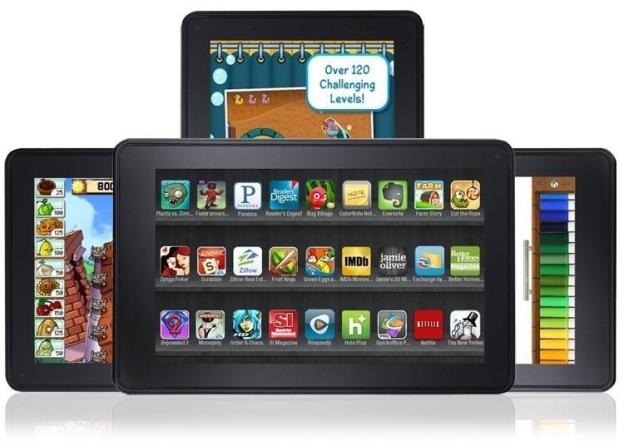 Amazon has announced its Android application store is about to undergo an extensive international launch, as it will be coming to nearly 200 new countries around the world very soon. The list hasn’t been published in its entirety (that would make one massive press release), but Amazon has confirmed Australia, Brazil, Canada, Mexico, India, South Africa and South Korea are all included, and to emphasize how wide-ranging the launch will be, adds Papua New Guinea and Vatican City too. Google Play, as a comparison, offers paid apps in just over 130 countries around the world.
Amazon has announced its Android application store is about to undergo an extensive international launch, as it will be coming to nearly 200 new countries around the world very soon. The list hasn’t been published in its entirety (that would make one massive press release), but Amazon has confirmed Australia, Brazil, Canada, Mexico, India, South Africa and South Korea are all included, and to emphasize how wide-ranging the launch will be, adds Papua New Guinea and Vatican City too. Google Play, as a comparison, offers paid apps in just over 130 countries around the world.
At this stage, Amazon is calling for its developers to tweak their apps ready for international distribution, but notes that they’ll automatically be added to the new stores unless otherwise specified. This is the same approach Amazon took when it pushed the app store to the UK and other European locations. A similar press release was sent out in June last year, before the store opened its virtual doors at the end of August. If Amazon follows the same schedule this time around, then we can expect at least some of the new stores to open by the end of June.
Could this be stage one of an Amazon smartphone launch program?
While the Amazon app store can be accessed from any Android device, after downloading the relevant app, it’s at its most financially beneficial to the company when it’s used on one of Amazon’s Kindle Fire tablets. Soon after the opening of the store in the UK, so the Kindle Fire and Kindle Fire HD arrived, and it makes sense for the company to do the same with at least some of these new locations.
It could also be seen as more than a coincidence that many of these newly added countries are valuable emerging markets – Brazil, Mexico, India and South Africa are some of the largest, and they’re all mentioned in this initial press release. Amazon has repeatedly been linked with rumors about it building a smartphone, which like the Kindle Fire tablets, is expected to be cheap.
A budget smartphone with Kindle Fire build quality, linked solely to Amazon’s app store and running a similarly restricted version of Android, sold in any of these places has the potential to be a huge hit and extremely profitable for Amazon. At the end of March, a rumor indicated the phone was likely to enter production in June, and the device would feature a 4.7-inch touchscreen. So, new app stores could open in June, and production of a smartphone could also start around the same time. Last year, Amazon launched the Kindle Fire HD and HD+ on September 6; could we see something similar for the rumored smartphone this year?
Editors' Recommendations
- Google is launching a powerful new AI app for your Android phone
- App subscription fatigue is quickly ruining my smartphone
- Google Play Store helps find the apps invading your privacy
- How to get Android apps on a Chromebook
- U.K. agency says Apple and Google are stifling user choice in their app stores




